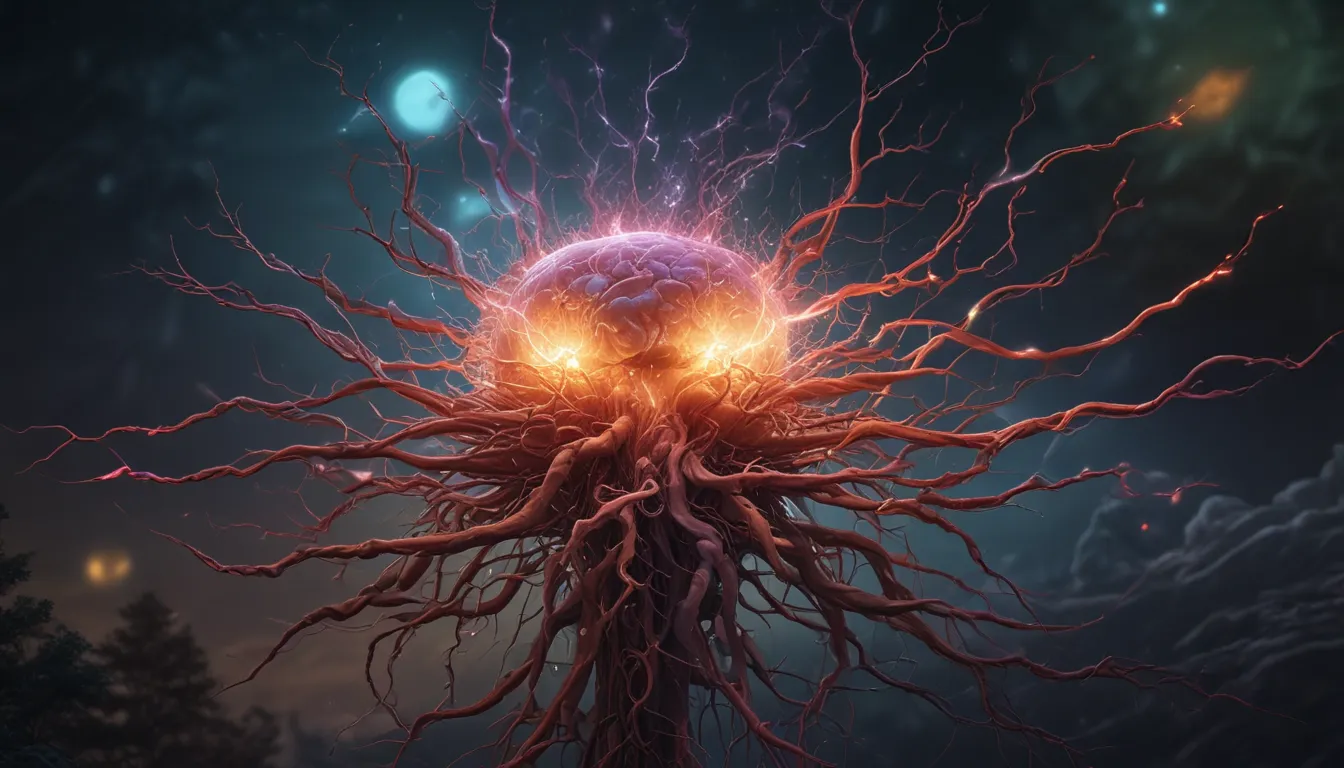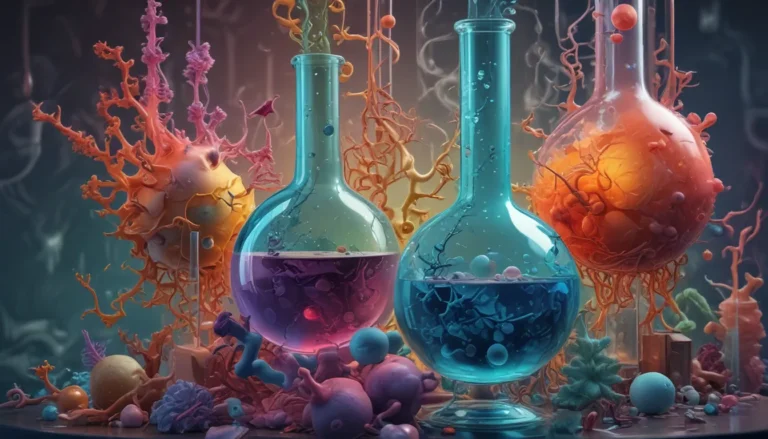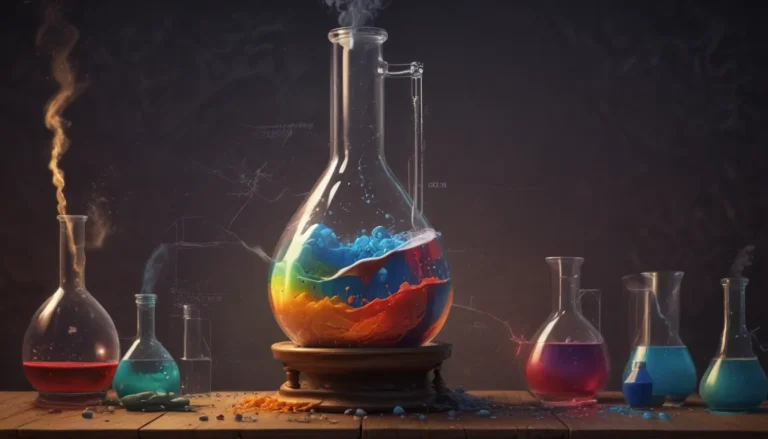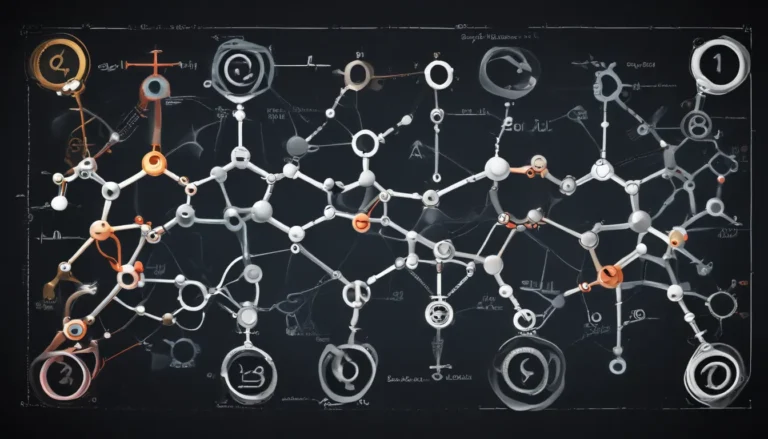A Note About Images: The images used in our articles are for illustration purposes only and may not exactly match the content. They are meant to engage readers, but the text should be relied upon for accurate information.
Welcome to the captivating world of organic chemistry, where molecules dance and reactions unveil astonishing wonders. Organic reactions are not just chemical transformations; they are the building blocks of modern science, shaping everything from life-saving medicines to cutting-edge materials. Join us on an illuminating journey as we delve into nine mind-blowing facts about organic reactions that will ignite your curiosity and deepen your appreciation for the marvels of chemistry.
Unveiling the Foundation: Organic Reactions and Their Significance
Organic reactions serve as the cornerstone of chemistry, allowing scientists to convert simple starting materials into complex compounds through the manipulation of chemical bonds. These reactions, whether forming carbon-carbon bonds or other vital connections, enable the synthesis of intricate molecules necessary for myriad scientific applications.
A Kaleidoscope of Diversity: Exploring the Types of Organic Reactions
Organic reactions span a diverse spectrum, encompassing substitution, addition, elimination, and rearrangement reactions, each with its unique characteristics and mechanisms. These varied reaction types contribute to the richness and complexity of organic chemistry, offering endless possibilities for scientific exploration.
- Substitution Reactions: Involves the replacement of one functional group with another in a molecule.
- Addition Reactions: Lead to the addition of atoms or groups to a molecule, transforming its structure.
- Elimination Reactions: Result in the removal of atoms or groups from a molecule, altering its composition.
- Rearrangement Reactions: Involve the rearrangement of atoms within a molecule, leading to structural change.
The Catalyst Effect: Catalyzing Organic Reactions for Enhanced Efficiency
Catalysts serve as the unsung heroes of organic chemistry, accelerating reactions by providing alternative pathways with lower energy barriers. These catalysts play a pivotal role in increasing reaction rates, improving efficiency, and steering the course of reactions towards desired outcomes.
Environmental Influences: External Factors Shaping Organic Reactions
Temperature, pressure, solvent selection, and the presence of additional reagents all wield significant influence over organic reactions. By carefully manipulating these external factors, chemists can control reaction selectivity, yield, and overall efficiency, ensuring desired results.
Beyond the Laboratory: Organic Reactions in Natural and Industrial Settings
Organic reactions transcend the confines of laboratory walls, manifesting in natural processes and industrial applications alike. From biochemical reactions essential for life to industrial transformations driving technological advancements, organic reactions permeate various facets of our world.
Pioneering Progress: Organic Reactions in the Pharmaceutical Frontier
The pharmaceutical industry owes much of its progress to organic reactions, which enable the synthesis of complex drug molecules with enhanced therapeutic properties. Through these groundbreaking reactions, chemists unlock new avenues for drug discovery and development, shaping the future of healthcare.
Constant Evolution: The Dynamic Realm of Organic Reactions
With the advent of new technologies and methodologies, organic reactions continue to evolve, becoming more efficient and effective. Chemists remain at the forefront of innovation, exploring novel catalysts, reaction conditions, and strategies to enhance existing reactions and pioneer new ones.
Strategic Planning and Analysis: The Prerequisites for Successful Organic Reactions
Before embarking on an organic reaction, meticulous planning, selection of appropriate reagents, and prediction of potential reaction pathways are essential. Thorough analysis and characterization of reaction products post-reaction are vital for deciphering reaction mechanisms and ensuring success.
Green Chemistry: Towards Sustainable Organic Reactions
A burgeoning area of research focuses on developing environmentally friendly and sustainable organic reactions. Scientists strive to reduce hazardous substances, minimize waste, and enhance reaction efficiency, fostering a paradigm shift towards greener and more sustainable chemistry practices.
Conclusion: Embracing the Marvels of Organic Chemistry
Organic reactions stand as a testament to the boundless creativity and ingenuity of the scientific community, offering a gateway to groundbreaking discoveries and technological advances. By understanding and harnessing the power of organic reactions, we unlock a world of possibilities, driving innovation and progress across diverse fields of science and industry.
FAQs: Illuminating Insights into Organic Reactions
-
What is an organic reaction?
An organic reaction entails the transformation of one or more organic compounds into new compounds through the breaking and formation of covalent bonds. -
What are some common types of organic reactions?
Common types of organic reactions include substitution, addition, elimination, and oxidation-reduction reactions, each entailing distinctive molecular rearrangements. -
What role do catalysts play in organic reactions?
Catalysts facilitate organic reactions by lowering the activation energy required for reactions to occur, thereby increasing reaction rates and efficiency without being consumed in the process. -
How are organic reactions relevant in everyday life?
Organic reactions play a pivotal role in the synthesis of pharmaceutical drugs, the production of polymers, and the creation of agricultural chemicals, shaping various aspects of everyday life. -
Why is understanding reaction mechanisms crucial in organic chemistry?
Understanding reaction mechanisms enables chemists to predict and control reaction outcomes, optimize conditions, and design efficient and selective reactions, enhancing the efficacy of organic transformations.
Embark on your exploration of organic reactions with a newfound appreciation for their intricacies and far-reaching implications. Delve deeper into the captivating world of chemistry, where molecules converge, reactions transpire, and scientific wonders unfold before your eyes. Join us on this exhilarating journey of discovery, where the magic of organic reactions awaits your curiosity and sparks your imagination.






